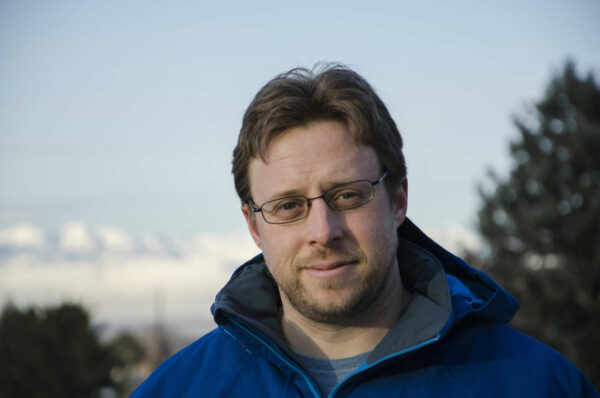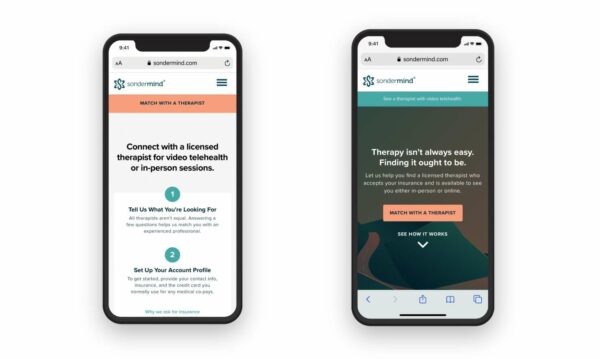Sponsored by Monday Properties and written by ARLnow, Startup Monday is a weekly column that profiles Arlington-based startups, founders, and other local technology news. Monday Properties is proudly featuring 1515 Wilson Blvd in Rosslyn.
Qntfy, an Arlington-based startup collecting data on mental health, has just been acquired by a platform that connects therapists and patients.
The terms of the acquisition by Denver-based SonderMind are not public. But the purchase of the 6.5-year-old company came right as Qntfy was beta-testing its software, which analyzes users’ data to enhance people’s experience in therapy.
“Often, in therapy, the homework is to go home and record your thoughts, emotions, what’s happened, whatever we’re trying to track,” said Qntfy’s founder Glen Coppersmith, now the Chief Data Officer at SonderMind. “It turns out there are other ways to capture that information: Some of us have wearables that explain what our heart is doing, when we’re sleeping. Others of us have social media, and we’re explicit about what’s going on in our lives: we’re posting pictures with or without people, what we do.”
The software’s algorithm uses the data to estimate the mental health of the patient, which can then inform therapy sessions and improve the patient’s well-being over time, he said.

Coppersmith says the product was still being tested when a potential funder introduced him to the CEO of SonderMind in early 2021.
“And that went in a very different direction than any of us thought,” Coppersmith said. “They were building all these human systems, while we were building all the technology systems. We were building as the same company and yet, we’d never met.”
Through the acquisition, SonderMind has gained a data science team and Qntfy now has a way of integrating its algorithm into the mental health field, he said.
“Recruiting Glen and the Qntfy team adds additional depth to the comprehensive SonderMind experience,” SonderMind’s co-founder and CEO Mark Frank said in a statement. “This ultimately gets people better more quickly, more effectively, and at less cost over time.”
The algorithm will be built into SonderMind’s app, which is “very far along in development” and “coming in the very near term,” Coppersmith said.
The app will be available to residents in a dozen states, including Maryland and Virginia. In 2022, SonderMind will continue personalizing therapy using Qntfy’s system, he added.

Qntfy mostly operated remotely but had an Arlington office and its first check came from local co-working space Eastern Foundry.
As part of the office space’s first Foundry cup, the company awarded innovative approaches to understanding post-traumatic stress disorder — a particular interest of the company’s veteran founders, Coppersmith said.
“I’m not a vet, but my background is in computer science and psychology,” he said. “I’ve always been interested in using computers to understand human behavior… what makes people violent, and how do you understand and prevent that.”
While Coppersmith explored these questions during his graduate work at Johns Hopkins University, he discovered a “gaping hole” in available data on mental health outcomes.
“There’s immense pain, suffering and cost associated with mental health, but part of the real difficulty was that we couldn’t quantify objective measures of mental health and well being,” he said.
Since the available measures cost significant time and money, he turned to repurposing user data that would otherwise just get used to sell people goods and services.
To fund the research and development of that technology, Qntfy worked with clients seeking a greater understanding of mental health issues, including the George W. Bush Presidential Center, a nonprofit for veteran wellness.
“We were a standalone business incubating this product, taking contracts that allowed us to build the relevant technology for this, and we had enough and were going for rapid expansion,” he said. “This is a far better plan.”


